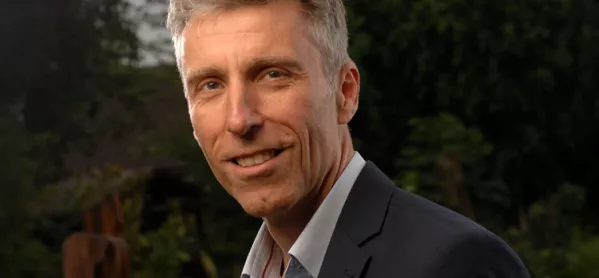David Hughes is anything but the new kid on the block in further education. He has spent almost 20 years working in the FE and skills sector, first at the Learning and Skills Council (LSC) and then the Skills Funding Agency (SFA). Most recently, he oversaw the relaunch of adult learning charity Niace as the Learning and Work Institute.
In September, Mr Hughes will take on another of the biggest jobs in the sector when he replaces Martin Doel as chief executive of the Association of Colleges, which represents more than 350 colleges in England.
‘Striving for fairness’
Throughout his career, Mr Hughes has been driven by a desire to strive for fairness. This trait was instilled in him by his parents - a clerk and a dinner lady - during his upbringing in London, he tells TES.
“We were brought up to believe in ourselves, so I always felt privileged but not affluent,” he says. “That gave me the chance to look out for people and strive for fairness. So that has always driven me.
“What I have always wanted to do is give people choices. The reason I have been involved with further education colleges in the last 20-odd years is because they are often essential for giving chances to people. They are essential to our societies and communities, and they are now having a difficult time.”
Mr Hughes is confident that his wealth of experience will stand him in good stead in his new role, particularly with huge changes ahead after the area reviews, which are expected to result in “fewer, larger, more resilient and efficient” colleges, and the devolution of skills funding.
“I understand about the local. I have worked regionally and nationally, so I have an understanding of the system from different perspectives and I know a lot of people,” he says. “Hopefully, I will bring a bit of continuity from the past, because there has been a lot of experimenting in the time I have been in the sector, and this is another attempt to improve the system.”
This is an edited version of an article in the 10 June edition of TES. Subscribers can read the full interview here.
FE SPECIAL OFFER: click here to try out a TES Further Education subscription for just £1 for four weeks.
Want to keep up with the latest education news and opinion? Follow TES FE News on Twitter, like us on Facebook and follow us on LinkedIn




